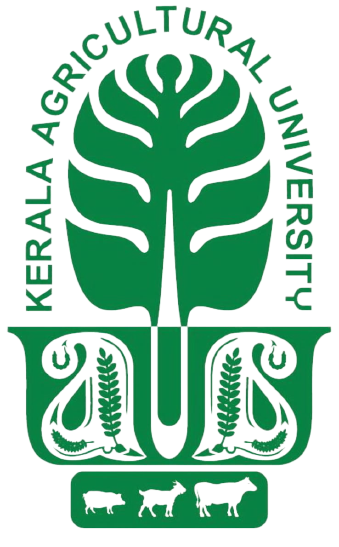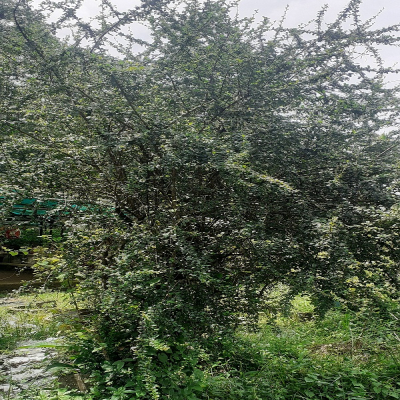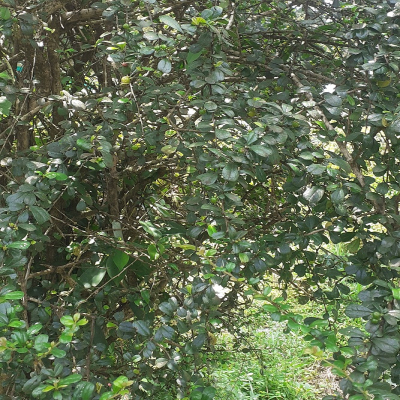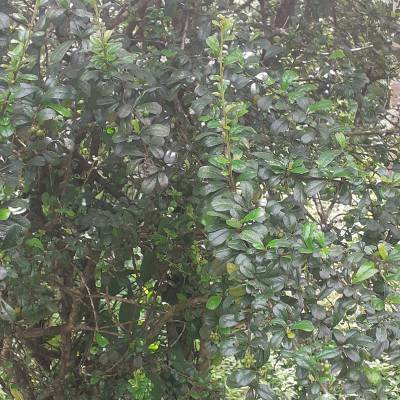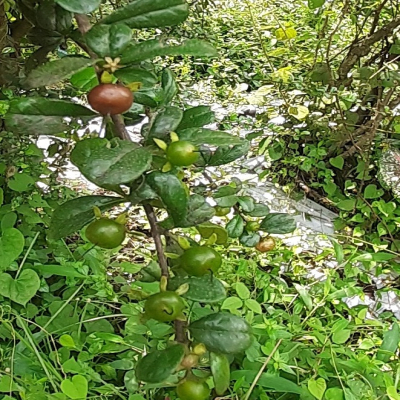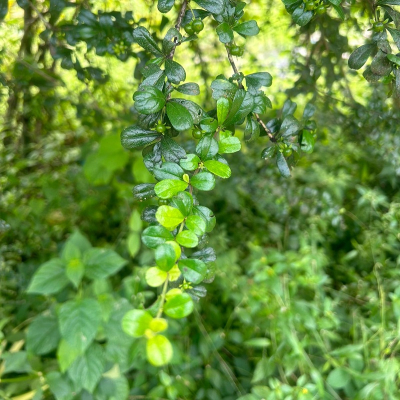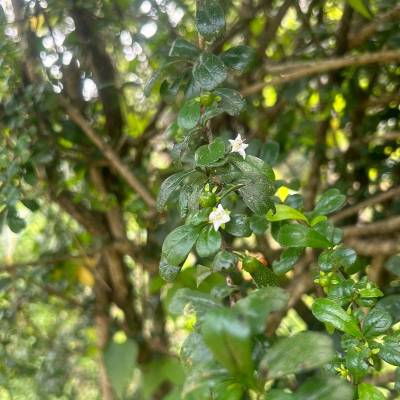Ehretia aspera Willd.
Synonyms : E. dichotoma Rottl. , Ehretia laevis Roxb.
Family : Boraginaceae
Parts Used : Root , Leaf
Vernacular Names :-
| English | : | Ehretia |
| Malayalam | : | Chavandi |
| Hindi | : | Dadranga, Paprichamron, Koda, Darar |
| Sanskrit | : | Pusipan |
| Assamese | : | Hambouk-arong |
| Bengali | : | Tamboli |
| Gujarathi | : | Sakar |
| Kannada | : | Adak, Bagari, Kappura |
| Tamil | : | Chinor, Datrang, Tamoiya |
Distribution and Habitat: Common in deciduous forest of tropical and subtropical regions of India, South Andaman.
Botany: Tree 10-13 m high; branchlets glabrous or rusty pubescent
- Leaves: Alternate, simple, petioles 1.6 cm long, lamina 12.5 cm by 5.6 cm, ovate, shortly acuminate, young ones softly hairy or glabrous while old ones glabrescent.
- Inflorescence: Corymbs subaxillary, 7.5 cm long, compound, lax, ultimate branches long, recurved. Flowers white, 0.25 cm long, tubular.
- Fruit: Drupes 0.5 cm in diameter, depressed, globose.
Properties: Preventive
Chemical constituents: Baurneol and allantoin
Uses: Used in syphilis, diarrhea, preventive against tooth aches.
